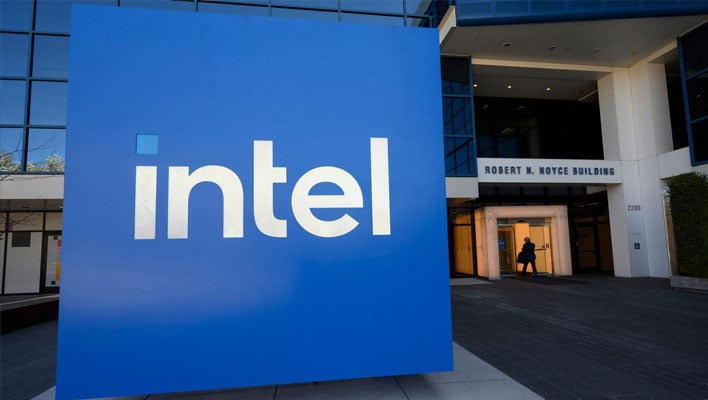Intel Is The Top Chip Company Again But The Semiconductor Market Is In Shambles

While not exactly a stunning turn of events, Samsung is no longer the word's top semiconductor vendor, as ranked by revenue. That distinction now belongs to Intel, which regained the crown at the end of 2023 after settling for second place for the previous two years—Intel raked in $48.7 billion in semiconductor revenue, and it also claimed the largest share of the market at 9.1 percent.
Meanwhile, while Samsung ceded the crown, it still ranked high at the No. 2 spot with $39.9 billion in semiconductor revenue for 2023, and a 7.5 percent share of the market.
Being at or near the top is obviously a good thing, though overall it's been deemed a "difficult year" for the semiconductor market as a whole. Total revenue fell to $533 billion for 2023, which is an 11.1 percent drop from the previous year, according to Gartner. In particular, falling and lethargic memory prices dragged the market down.
"While the cyclicality in the semiconductor industry was present again in 2023, the market suffered a difficult year with memory revenue recording one of its worst declines in history," said Alan Priestley, VP Analyst at Gartner. "The underperforming market also negatively impacted several semiconductor vendors. Only 9 of the top 25 semiconductor vendors posted revenue growth in 2023, with 10 experiencing double-digit declines."
Intel's revenue growth for 2023 took a sizable hit, declining 16.7 percent year-over-year. Samsung took an even bigger hit, though, with revenue growth sliding 37.5 percent. This in turn cost the company the No. 1 spot. Qualcomm claimed the No. 3 spot with just over $29 billion in revenue, which is 16.6 percent less than the prior year.
There were some notable exceptions, though, and none bigger than NVIDIA—the GPU designer saw its semiconductor revenue growth balloon 56.4 percent year-over-year to $23.98 billion, which improved its rank from No. 12 in 2022 all the way to No. 5 by the end of 2023. This is the first time in NVIDIA's history that it has cracked the top five, and it's due in large part to its focus on silicon for the burgeoning artificial intelligence (AI) market.
The only other climbers were Broadcom (up 7.2 percent to $25.59 billion) at No. 4 and STMicroelectronics (up 7.7 percent to $17.06 billion) at No. 8.
What about TSMC? Gartner doesn't include the firm in these rankings because it's strictly a fab and doesn't design it's own silicon for sale. And as it relates to non-memory revenue, it fared much better than the memory market, though still slid a bit with a 3 percent year-over-year decline.
"Unlike the memory vendors, most non-memory vendors experienced a relatively benign pricing environment in 2023," said Unsworth. "The demand for non-memory semiconductors for AI applications was the strongest growth driver, with the automotive sector (especially electric vehicles), defense and aerospace industries, also outperforming most other application segments."
It will be interesting to see how the semiconductors rankings hold up at the end of this year. We're still at the relatively early stages of a major push towards AI-enabled experiences and the hardware that will drive them, such as the NPUs in Intel's Core Ultra Meteor Lake processors.

